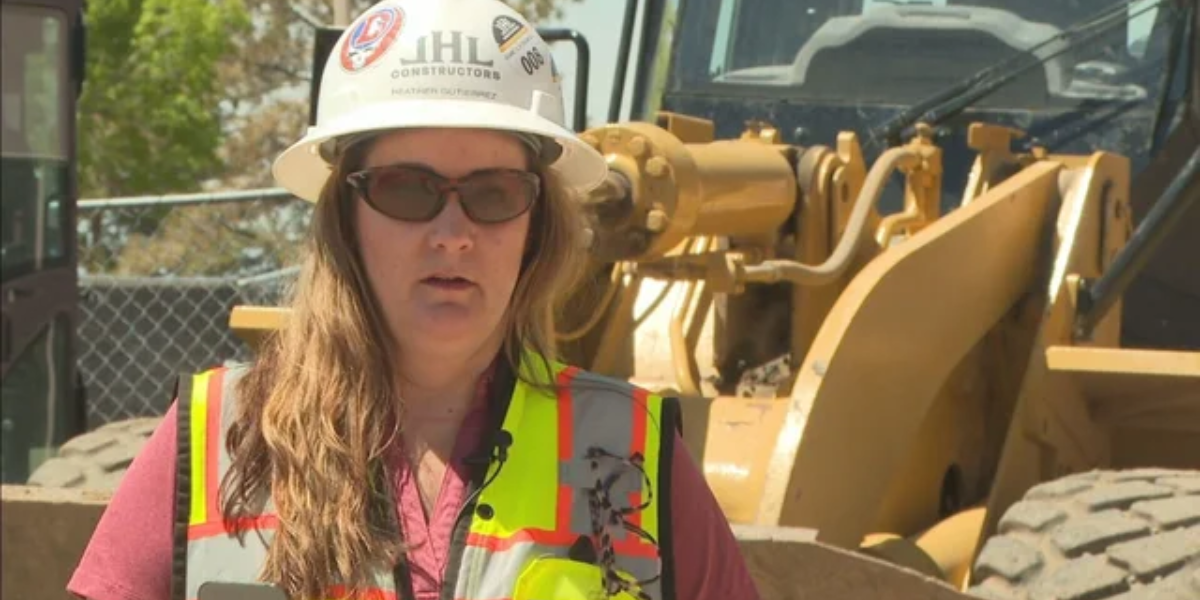Workers in the construction sector frequently confront one-of-a-kind obstacles that can have an effect on their own mental health, which can lead to issues such as substance misuse or even suicide.
At the same time that a local mother is using the death of her son as an opportunity to advocate for mental health awareness on construction sites, a local task force and working group are now working toward the goal of bringing about change within the construction sector.
“Throughout the course of my life, I’ve lost people to suicide and to substance use disorder,” Heather Gutierrez said.
In March of 2022, Gutierrez’s son, Ty, who was 17 years old, passed away as a result of an intentional overdose of fentanyl. For a number of years, he had been battling with issues related to his mental health.
“More and more, it became unacceptable. Due to the fact that he was constantly in and out of inpatient and outpatient therapy, there was not a reliable resource available to provide him with support, as Gutierrez noted. “You feel helpless, and it shows how much of a need there is, not just in construction, but mental health and recovery support across the board.”
When it comes to the Mental Health Working Group at Associated General Contractors, Gutierrez serves as the co-chair alongside Nick Williams, who also serves in the same capacity.
As a response to the frightening figures and patterns that were occurring within the building industry in 2021, the working group was initially established as a task force. As a result of their investigation, they discovered that the construction industry is the most responsible for deaths caused by suicide and overdoses among all private enterprises.
According to data that was only recently published, Williams also mentioned that the number of drug overdoses in the United States decreased by approximately 35 percent; however, construction did not experience the same kind of decline.
“Unfortunately, we still do have an abnormal number of deaths by opioid overdose in our industry,” Williams stated in an interview.
Among the many elements that could have an effect on a person’s mental health in the construction industry, Williams mentioned that there is a culture of alcohol misuse in the construction industry.
“It’s stuff like being alone, how hard work is, and how difficult it is. Williams, who is also the Chief Executive Officer of the American Subcontractors Association of Colorado, stated that having access to the kinds of pharmaceuticals that individuals get when they are harmed on the job is difficult on the body of those who have access to them. “We also have the presence of wondering where my next paycheck is going to come from and the seasonality of the work.”
The objective of the group is to promote conversations within the construction industry regarding issues pertaining to mental health, substance use disorder, and suicide. Employers are also encouraged to create a secure environment in which employees may have these conversations and receive assistance when it is required.
Even as recently as five years ago, Williams stated that there was a significant stigma. “But we’ve started to see that stigma reduce just by normalizing the conversation.”
“Having leaders that have been through suicide, has been through substance use, or even have been, you know, in active addiction themselves, speak out,” Gutierrez stated in an interview.
Additionally, the working group educates individuals on the symptoms that they should be on the lookout for and offers employers and employees with information regarding resources. By doing so, they intend to make materials accessible to everyone who might have a requirement for them.
Williams stated that there is a model that may be used to determine what can be productive. “You’ve seen things like harm reduction, access to Narcan, access to naloxone, ready access to good, high quality mental health care.”
In 2024, the task force also conducted a training session in the construction industry in Colorado that was the first of its kind. The purpose of the training was to teach workers how to give naloxone, which is a medication that can reverse the effects of an opioid overdose. Participants in the program were given the opportunity to hear from a rehabilitation counselor as well as a person who had survived an opioid overdose. Similar training is scheduled to take place throughout the month of August.
By effecting a cultural shift in the construction sector and placing a higher priority on mental health in the workplace, they want to bring about a reduction in the number of people who commit suicide and who overdose on drugs.
“I think if construction can really embrace some of those templates, we can see that reduction in our workforce as well,” Williams stated in an interview. “There’s no shortage of great people doing great work, and that’s encouraging.”
“What we do is extremely risky by its very nature. Therefore, if you are not mentally prepared, you are not only not safe for yourself, but you are also not safe for your wingman who is standing next to you,” Gutierrez explained.
Not only is the work personal for Gutierrez, but it is also done in honor of her son.
“This is not a movement that is powerless. “All that is required of us is to get the message out there,” Gutierrez said. “I’m not going to let anybody forget my son, and his death will not be in vain.”


 by
by 

